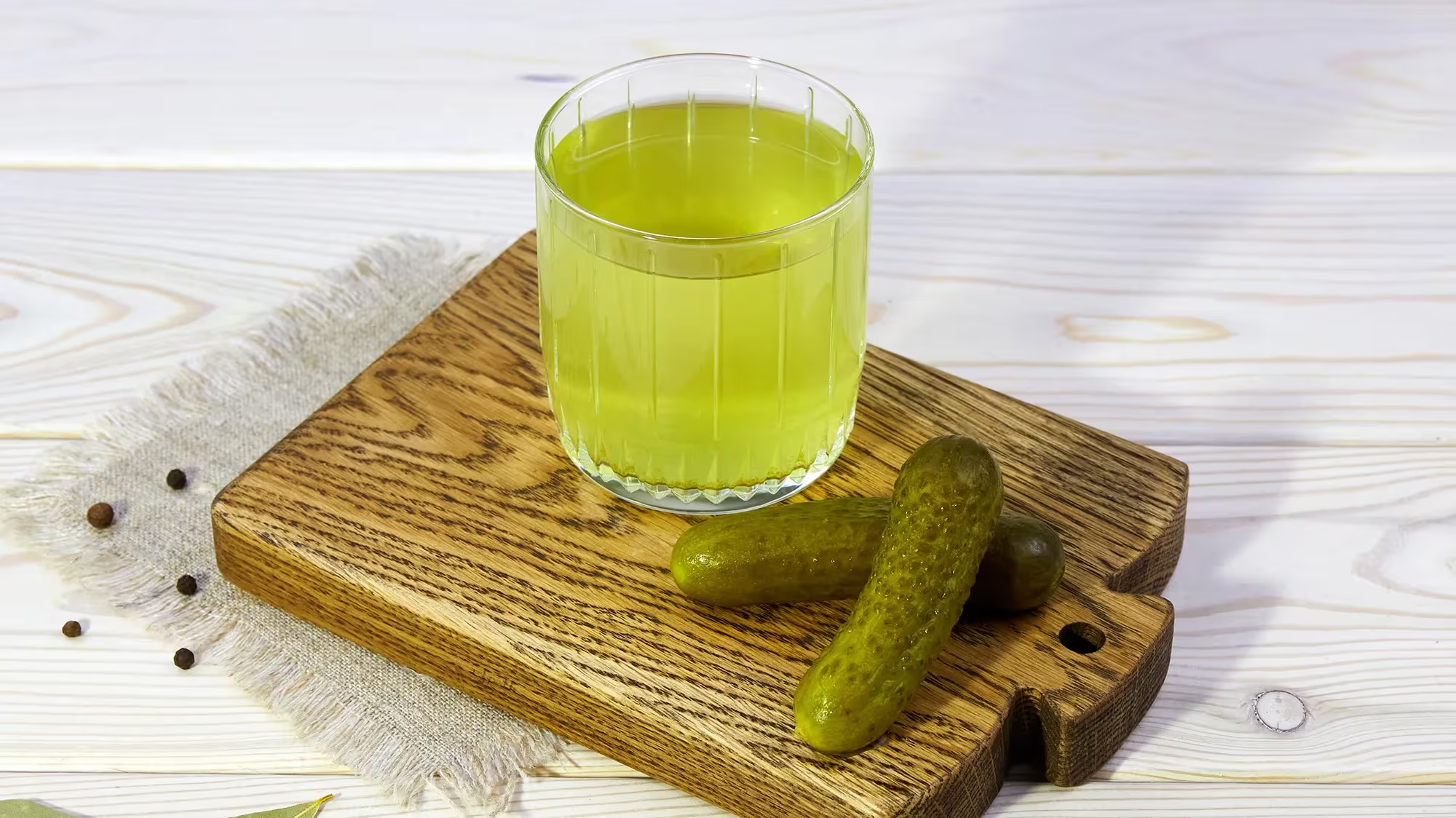
Dehydration, excessive muscle use, exhaustion, nerve irritation, and electrolyte imbalances are some of the major causes of muscle cramps.
Although stretching, massaging, and eating foods high in potassium are traditional treatments, pickle juice has recently become well-liked as a fast fix.
Remarkably, its quick action—typically within 30 to 90 seconds—indicates that it doesn’t function by rehydrating electrolytes.
The vinegar in pickle juice, on the other hand, activates receptors in the throat and mouth, sending messages that momentarily block the nerve misfires that are producing the cramp.

Drink two to three ounces as soon as a cramp starts for quick relief, but take it sparingly because of its high sodium content, especially if you have kidney problems or high blood pressure.
Pickle juice may exacerbate symptoms for people with acid reflux, but it is most beneficial for athletes who are prone to cramping after activity and for elderly people who get leg cramps at night.

Although it works well, it should be used in conjunction with stretching, a diet high in potassium and magnesium, adequate hydration, and other preventative measures rather than in substitution of them.
Although pickle juice doesn’t treat the underlying cause of cramps or take the place of electrolyte replacement, it does provide a quick and low-cost method of relieving them by blocking nerve signals.















